davidsonian.com
Greek students on campus discuss the impact of the wildfires in Greece
Independent Student Journalism Since 1914
September 27, 2023
Annie
Hirshman
Volume 122,
Issue 02
‘24 reflects on her experience with new field hockey coach
Judah Silverman ‘27 and Vonna Lin ‘27 offer insight into on new VAC exhibit
Maggie Thrall ‘26 interviews three Wildcats about their summer experiences
2 4 6 7
Anthropology Department Reckons With Its Past
Davidson Returns Illegally Obtained Skeletons
MADELINE RICHARD ‘26 (SHE/HER) AND SOFIA CIMBALLA ‘26 (SHE/ HER) SENIOR STAFF WRITERS
Davidson’s anthropology department is working to acknowledge the history of its teaching collection. Last February, the department repatriated human skeletal remains that had previously been in the department’s collection for 10 years. According to a presentation by the anthropology department, repatriation is “the act or process of restoring or returning someone or something to the country of origin, allegiance, or citizenship.”
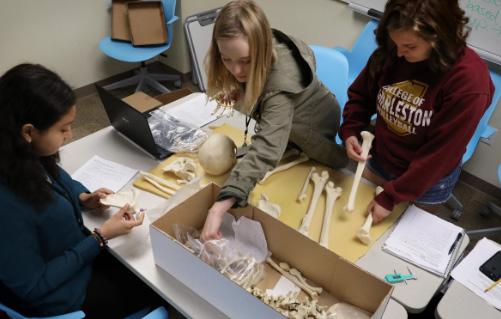
A member of the surrounding community found a skull in his father’s house and donated it to the anthropology department in 2013; however, further research revealed that this skull had a problematic backstory. Dr. Helen Cho is an anthropology professor and the interim department chair, and she advised Rory Fallmer ‘23, who analyzed the skull during an independent study. Cho spoke about the skull’s history and explained that it may have been acquired through unethical means.
“It is likely that there were archeologists who were visiting the Yucatan in the 1930s and probably just picked [the skull] up, brought it in a suitcase, and then just kind of like gifted it to someone,” Cho said. “They just took it
back with them because it was possible back then [...] before we had antiquities laws,” Cho added.
The skull’s story reflects “an outright
or “souvenir” rather than acknowledging the lives of the people who occupied those bodies.
To address the history behind the skull’s acquisition, the college arranged for
that have to be undone, or at least reconciled with.”
The repatriation process began with Fallmer’s research project but continued when the department called the Mexican consulate in Raleigh-Durham, and eventually had the skull returned to its place of origin.
“The Consul General came this February for an official repatriation event on campus [...] she gave a speech and the Anthro department explained this was necessary,” Cho said. “She took [the skull] and then through her legal channels, it ended up back in Mexico.”
Eva Carter ‘24, an anthropology major, shared their perspective on the repatriation event as well.
“The whole [repatriation] process was honestly way slower than it needed to be,” Carter said. “But it was very informative and cool to see it culminate!”
This event also concerns broader ethical implications around the handling of human remains in academic settings.
disrespect for the other,” Cho said. According to Cho, people often treat human remains — particularly skulls — as a sort of “trinket”
repatriation. While repatriation cannot erase disrespectful behavior, Cho explained that it acknowledges that there are “a lot of injustices
When asked why these issues merit attention and publicity, Dr. Aviva Cormier, Visiting Assistant Professor of Anthropology, stated “Because these are human beings. Not biological specimens. For many individuals that wind up in teaching collections, they did not ask or desire to be used in that manner.”
CONTINUED ON PAGE 2
Davidson Welcomes New Chaplain Julia Watkins
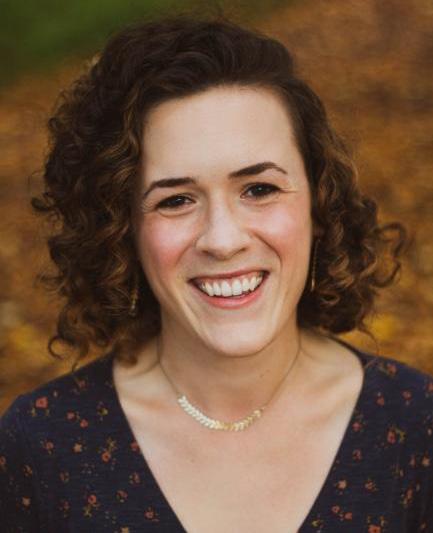
ANNABEL GROSECLOSE ‘27 (SHE/HER) STAFF WRITER
Davidson welcomed a new College Chaplain and Director of Religious and Spiritual Life at the start of the fall semester. Julia Watkins ‘14 has returned to campus following the retirement of Rob Spach ‘84 with a desire to support and value all religious, spiritual, and cultural beliefs held by students.
“It’s unique that there are students who come from a wide variety of backgrounds and have all different kinds of experiences and as a chaplain, I get to engage with students from across a spectrum of experiences and perspectives,” Watkins said “That’s really enlivening to me.”
Although the College’s campus has changed quite a bit since Watkins graduated, she continues to experience aspects of Davidson and the student body which initially drew her to the school as a student. Many of the organizations that Watkins participated in continue to thrive on campus including Chorale, Davidson Outdoors, Rusk Eating House, and Ukirk – the Presbyterian campus ministry at Davidson.
Although Watkins noted much has changed and expanded since her time here one thing she said remains consistent is the spirit of the student body.
“I think I liked the close-knit nature of campus, the sense that students here were curious and ambitious, but not at each other’s expense,” Watkins said. “It really felt like a collaborative environment, not one that was putting students against one another.”
During her time away from Davidson, Watkins lived in Greenville, South Carolina and worked as an associate pastor for outreach and congregational life at Westminster Presbyterian Church. Watkins focused on community organization work for
a variety of issues including affordable housing. Watkins felt as though this work provided her with ample opportunity to work with others who held different beliefs and exercise the flexibility to meet others where they were. She is coming into Davidson with an open mind and ready for a plethora of new experiences.
“I’m not coming in with a big agenda,” she said. “I really just want to spend time getting to know students and hearing what campus life is like now.”
Pastor and Head of Staff at Westminster Presbyterian Church Ben Door worked with Watkins for two years. He recognized that Watkins placed a high priority on inclusivity and acceptance during their time working together.
“She’s got an open mind and a compassionate heart; a very keen sense of what it takes to kind of blend the intellectual side of things with the caring for other people side of things, and she’s got real good theological head on her shoulders,” Dorr said. “I think she values the kind of small college community that Davidson represents with a lot of students who are very intentional and rigorous about their academic studies.”
As one of her responsibilities as Chaplain, Watkins runs the Spiritual Life Council. This council consists of several student representatives involved in different religious or spiritual organizations around campus. President of Young Life – a Christian ministry – Dolph Orthwein is one of the students on this council. Although he self admittingly is still in the process of getting to know Watkins, he expressed hope and approval regarding her leadership.
“It feels like she’s really making an effort to connect with students and get to know them,” Orthwein said.
Looking towards the future, Watkins is not only focusing on adding programs to the Chaplains office, but also on strengthening what is already in place.
“I actually think that one of the big needs of Davidson is
the space for students to not be doing anything,” Watkins said., “I hesitate to add things just to have more opportunities for students. It seems important to me that the chaplain’s office be a space where students can really just come be and have space for their minds and their spirits to catch up with their very busy bodies.”
Davidsonian
inside
The
Julia Watkins. Photo from Davidson College website
Students in the anthropology department examine remains. Photo from Davidson College
Anthropolgy Chair Discusses Ethics of Studying Skeletons
CONTINUED FROM PAGE 1
Cormier added that, “Thankfully at Davidson, this is not the case.”
Cho elaborated on Davidson’s approach to purchasing human remains for educational purposes.
“You have to do a background check on the sourcing [...] [the remains] should come from an ethical company,” she explained. “People donate their organs and bodies for medical schools and scientific research.”
Carter also commented on the complexity of using donated human remains, such as the aforementioned skull, in the department’s teaching collection
“It is a little bit of a strange beast to think through because in some ways it is good for the artifacts to be out of people’s personal homes and into a space where they will be more protected,” Carter said. “But it is vital that they are eventually returned and repatriated, rather than shoved into a box in a back corner in the archives, which they often are.” The department works to appreciate the lives of the deceased individuals that they study.
“Dr. [Laurian] Bowles [who is chair of the
anthropology department] is on sabbatical but will be working on, in collaboration with General Counsel, a college-wide guideline for
“I would like to see [...] that when we use human remains [...] it always has to be prefaced with a topic on ethics,” Cho said. “That is the
throughout the anthropology department — including in classes that do not study human remains.
“[Repatriation] is almost always mentioned in some way in anthro classes since for the most part the professors are fairly progressive in terms of beliefs and care a lot more than other departments about how their work and our learning affects indigenous peoples. But it is often just a passing comment or one unit during the semester,” Carter said.
Likewise, Maggie Thrall ‘26 took Religion, Society, and Culture last fall and emphasized that “it definitely brought in [...] equity and looking at different perspectives.”
Helen Cho, Chair and Professor of Anthropology
the care of human remains,” Cormier said. Cho expressed her hopes for these guidelines, and in doing so, foregrounded the department’s emphasis on respecting the lives of the humans they study.
least amount of preparation before we actually start using human remains for educational purposes — always making sure that they are not mishandled.”
Ethics and equity are themes that carry
“Themes of justice were brought up in the unfair treatment of these cultures from and in comparison to Western nations,” Thrall added. Moving forward, Professor Cho explained that “[repatriation] is something that is talked about a lot in biological anthropology, just gross mistreatment and justices on the already marginalized populations [...] this is something that is a reckoning that is happening across the country.”
Ablaze Abroad: Summer Brings Disastrous Wildfires in Greece Davidson’s Greek Student Body Discusses the Tragedy
EMILY HAZIM ‘26 (SHE/HER) STAFF WRITER, STELLA MACKLER ‘26 (SHE/ HER) CO-EIC, AND ANIKA BANERJEE ‘24 (SHE/HER) CO-EIC
The largest wildfires ever recorded in the European Union (EU) blazed in Greece in late August. That is according to the EU civil protection service, following a summer of intense heat and fires.
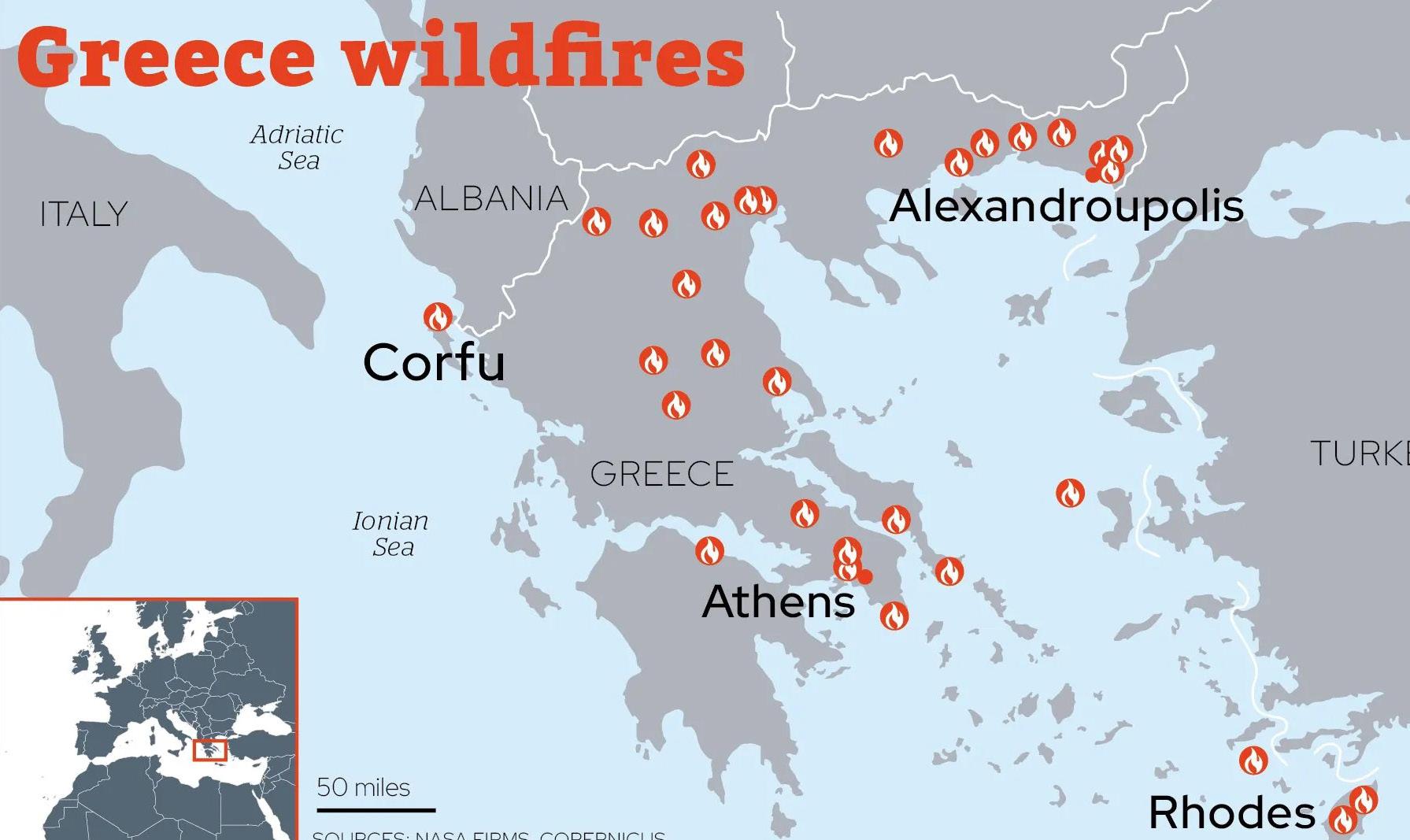
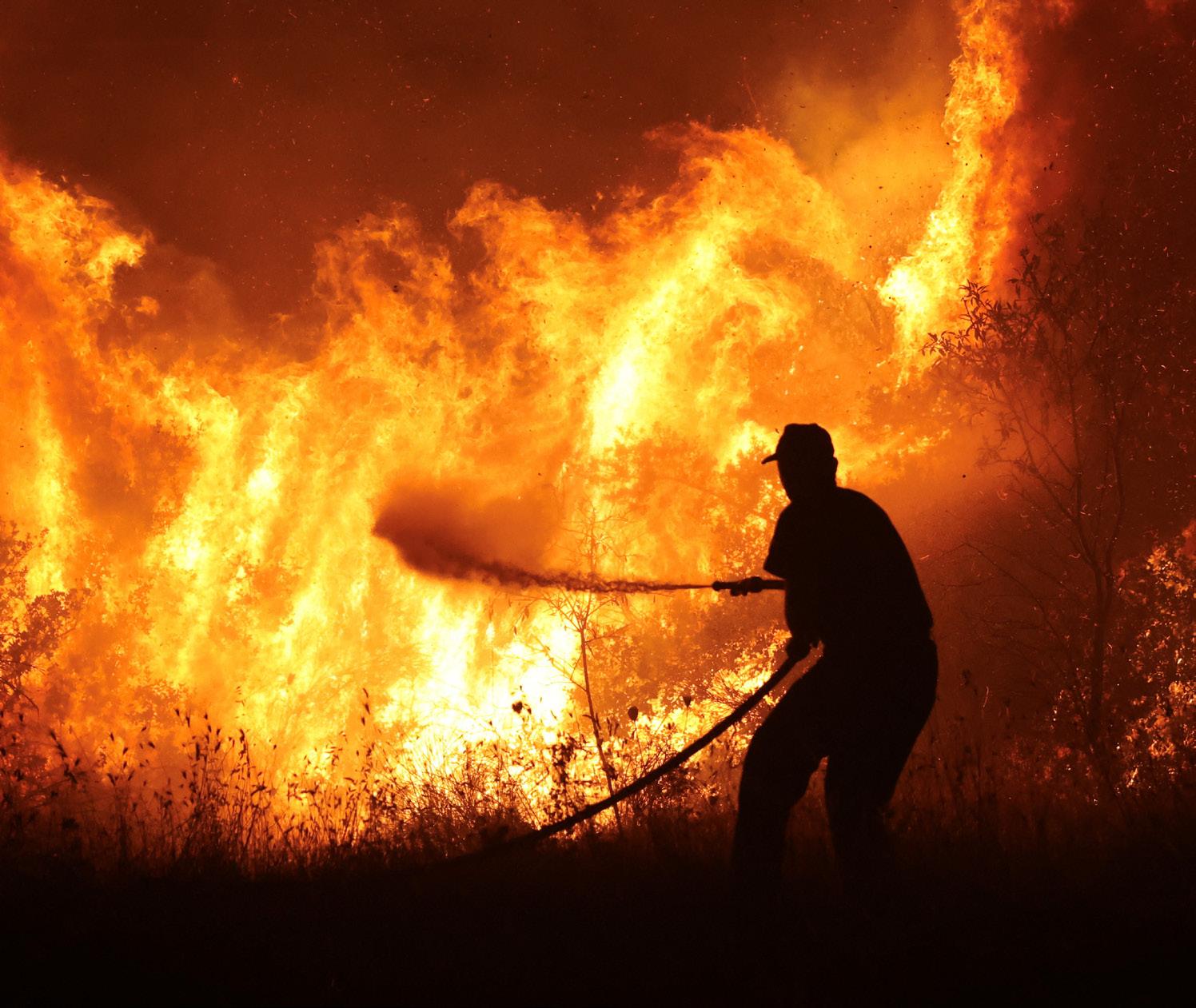
Davidson is home to many Greek students, several of whom were impacted, either directly or indirectly by the fires burning in their home country. Petros Basakis ‘24 had family on the island of Rhodes days before fires broke out.
“I still remember calling them to make sure they had left the island, while locals were helpless, watching their land burning and thousands of tourists were locked in flames,” Basakis said.
This summer, Anastasia Korre ‘24, one of the founders of the Greek Students Association, worked as a scout in Athens, her hometown.
“This summer, it was really hard. Athens is very densely populated and then all around it is mountains and forests,” Korre said. “The fires at that point were literally everywhere around Greece, there was smoke everywhere. It was right before I was leaving for the US for the fall semester and I was like, I gotta leave, it’s so bad I just want to leave.”
Korre emphasized the never ending nature of the fires.
“In Athens, it goes up to 115 degrees for weeks straight,” Korre said. “Every time you wake up, and it’s really windy, you know there’s gonna be a fire.”
According to NASA, fires are not unusual in Greece, however they are expected to become more common as the planet warms. Konstantina Akritidou ‘24, another Greek student and founding member of the Greek Students Association noted that this summer’s fires felt different than years past.
“I feel like previous years they happen and then stop, but this summer they were going throughout the whole summer,” Akritidou said. “Whenever I would stop at one island they would start on another one.”
While Akritidou and her family remained safe throughout the summer, she knows many people who faced greater danger.
“I had friends from high school living in
Alexandroupolis, which is where one of the biggest fires that happened in Greece this summer. And their grandparent’s houses were burned down.”
Tasos Pagounas ‘23 acknowledged that the fires accentuated political tensions in Greece.
“We have wildfires every summer,” Pagounas said. “We see over and over again, the government fails to come up with a plan to prevent that. I’m not saying there is an easy answer, or like an easy way out.”
Korres touched on the political problems as well, highlighting how the fires can cause job insecurity, specifically in relation to her friend’s restaurant on the island of Corfu that burned down.
“That is their only income,” Korre said. “It creates a lot of social inequality but also polarization because some people are more affected than others.”
Korres went on to explain how Greek laws might actually be encouraging the fires.
“The worst part is, I think our law right now is basically you cannot build on an area if there are trees, but if they burned down, then you can,” Korres said. “So many of the fires, especially in very urban areas, around Athens and all that, people put those fires. They leave out gas tanks and everything to start the fires.”
While the fires began over the summer, they continued into the start of the fall semester at Davidson. Many Greek students have felt supported by the Davidson community as a whole.
“Some American and international students as well as professors checked in on me to ensure that my family was okay back home,” Basakis said. “It is truly remarkable how caring the Davidson community can be in times of international hardship.”
Greek students were already back on campus when the fires reached their most intense point, and they have also been looking to each other for support.
“Just as other students, professors, and members of the Davidson community reached out to us to learn more about the fire situation in Greece, so too we checked in on each other,” Basakis said. “Knowing that our families were in Greece at such tragic times, we were all wishing for the best and hoping that everyone was safe. An ‘all good for now’ was all we wanted to hear.”
News 2
Firefighter works to control the blaze in Greece. Photo from Reuters
“I would like to see [...] that when we use human remains [...] it always has to be prefaced with a topic on ethics. That is the least amount of preparation before we actually start using human remains for educational purposes — always making sure that they are not mishandled.”
Map of major wildfires in Greece Photo from iNews
Bringing Back Community Access Following COVID-19
effect now.
What were some hardships you experienced in the fight for community access, if any?
Connor Hines ‘26, a sophomore senator on Student Government Association (SGA), has been an advocate for community access on campus since the beginning of his freshman year. He has long fought for Davidson to return its pre-COVID regulations, granting students the freedom to come and go from all residential buildings during given hours. One year into his tenure, community access has become a reality again on campus.
What is community access? What does it currently look like?
Community Access is just the ability for residential students to get into specific residential spaces on campus. It’s looked different throughout the years but now what we have moving forwards is that oncampus residential students can get into dorms… Watts, Canon, Little, Belk, Chidsey, Irwin (everything except the Martin Court apartments) during specific hours. Those hours are Sunday to Thursday from 12 PM noon to 8 PM, and Friday and Saturday from 12 PM noon to 10 PM.
How have you been involved in the process to bring back community access?
Community access was something that I have been pretty passionate about since I started Davidson my freshman year and started on SGA. Having spoken with alumni, it [community access] was a privilege that they really enjoyed having and thought added to their experience of being a Davidson student. When we came to Davidson last fall, and it was no longer available to us… this was something I wanted to change.
Last February, I—along with Samatha Ewing ‘23, the graduated senior Class President—met with Dean Snipes, Mac Topkins, Carly Dix, Dean Simpson, and Chief Coaxum. We had an initial meeting to figure out what each group wants: their hopes, their concerns. Then we had a few subsequent meetings during last semester where we narrowed down to discuss what community access was going to become. When Samantha and the seniors had graduated, I had a few other meetings with primarily Dean Snipes to come to a compromise agreement, which is in
There weren’t too many. A huge thank you to all the administrators that were involved! They, from the beginning, have always understood why this is important to students. We were defintely coming at it from different initial approaches. For better or for worse, as a representative of the sophomore class doing this on behalf of the student body, I am going to have a different “want” than the administration—and that makes sense. The main area that there was a little bit of tension was around the hours that we were going to have this available. If I could have had it completely my way, we would have 24/7 access like the used to back in the day, but I recognize that that’s not going to be mutually agreeable. The hours we have in place now are a reflection of that compromise. But again, I wouldn’t necessarily call this a hardship because we all understood where the others were coming from.
Why has it been so important to you that Davidson students get community access? Why is it important to the community?
I think Davidson, in a lot of respects, is sort of an outlier in the world, as far as the community that we have here. The high levels of trust that I think Davidson students have with each other and with the members of our college community is something that you’re not going to find in any other places. The safeguards that we have like the Honor Code or Code of Responsibility that allow this community to exist are really special. Part of that, for such a long time, has been the ability for students to go into their friends’ residence halls—especially I’d say your first two years. With the community access plan we have now, and certainly with plans they had in the past, it just allows for greater degree of socialization among students to build the community that we so cherish here.

I’d say why it is important to me personally is why it’s important to the community. Are there specific community guidelines students need to follow to have community access, and do you think students will respect them?
It was a statement essentially saying that you were going to uphold the Honor Code, the Code of Responsibility, Davidson rules
regarding sexual harassment and Ttitle 9 and so forth. These are all very important pieces in community access.
I said before I think our Davidson community is very special in many regards. I will say that some of the reasoning behind them taking away community access was not just because of COVID—because there was an obvious need during the pandemic—but there was also a large increase of vandalism in certain dorms. Our hope is that with a newer group of students that we have now under a new community access policy, safeguarded by a revised Code of Responsibility that will likely be rolling out some time this fall semester, we’ll have the necessary tools to uphold the agreement people signed when joining community access. But it also has to be stated again that this is a privilege, not a right. If it’s found that students aren’t able to treat residential spaces properly, then it’s not a privilege that will be able to exist anymore. It’s 100% on us students to make sure that this policy stays in place. We can’t go around vandalizing and breaking things and expect not to face any repercussions for that.
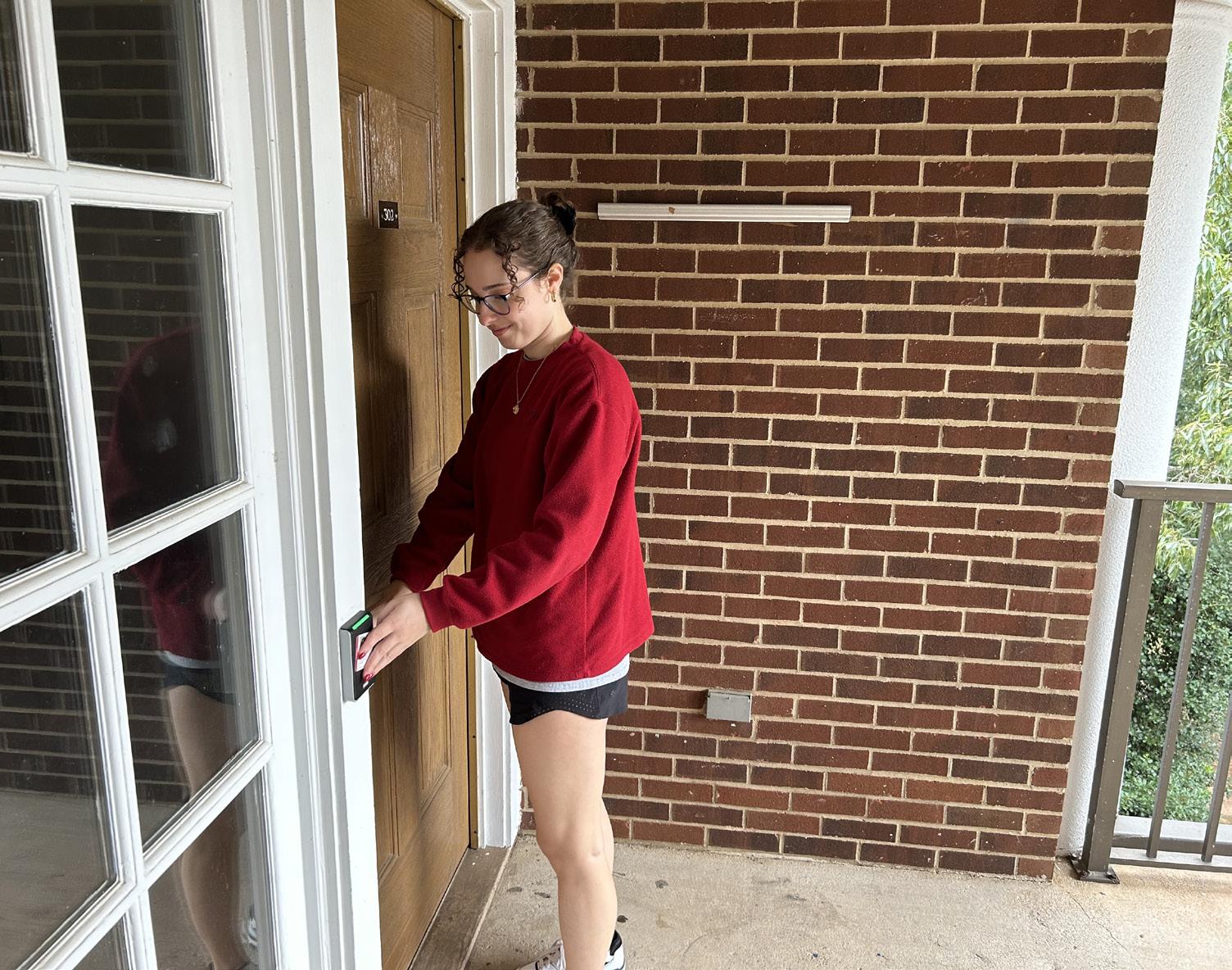
What do you expect from the future?
I guess I can sort of answer this in two ways. First of all, things that we have planned for the future—there’s going to be a lot of different programming throughout the year with SGA and different campus organizations promoting community responsibility. It’s greater than just community access—it’s about building a stronger Davidson community. Now, my hope is that if this policy runs very smoothly this year, then maybe we can look to expanding some of the hours in the future. Again, the hours that we chose were a very well thought through compromise and were not random. We had discussed certain timelines that happen everyday and why these hours fit, but my hope would be that if we can use community access the right way by upholding our agreement on the student side, then we can expand our hours in the future.
3
Crime Log Time Reported Offense/Location 09/24/23 00:49 hrs Alcohol Offense; Indecent Exposure BSC, Inactive 09/23/23 13:30 hrs Felony Breaking & Entering a Building Armfield, Further Investigation 09/23/23 12:00 hrs Forgery Offense College Store, Inactive Features 09/21/23 12:46 hrs Offense: Communicating Threats Carnegie Guest House, Inactive
ARSHI HUSAIN ‘26 (SHE/HER) FEATURES EDITOR
Kate Spencer ‘24 scans her catcard to access her apartment. Photo by Alexis Roudenko ‘24
Perspectives 4
How honored is Davidson’s Honor Code?
ELLIE RICE ‘25 (SHE/HER)
Whether we knew about the honor code before entering Davidson or came to appreciate it as soon as we got to campus, there is no doubt that it is intended to play an essential part of our lives. The honor code supports our academic and social relationships, but, as so many prospective students ask, “how honored is Davidson’s honor code really?”
According to tour guide Italy Ramos 25’, “It’s so important that you almost forget it’s there. You’re so used to this ‘Davidson bubble’ where you leave your stuff out and don’t even think twice about leaving it. [Even off campus] you see stuff outside window shops on Main Street or when there is food out at Pickled Peach or Milk Bread, or the books out at the bookstore. [The code] gives us hope in each other [and] allows us to focus on school and building friendships.”
However, due to self-imposed drive to over-achieve, Ramos also notes the darker side of the reliance on our code. Some are “so scared of failure, [they] would rather compromise morals and cheat than not meet expectations.”
Many other small liberal arts colleges ascribe to honor codes that guide student’s academic and social integrity. Perhaps a small student population helps foster a sense of trust and loyalty.
“My sister goes to Northeastern,” said economics major Lia Dougherty 25’ “[she] doesn’t know anyone in [her] classes, [she] doesn’t really know [her] professors, and when I talk to her about schoolwork,
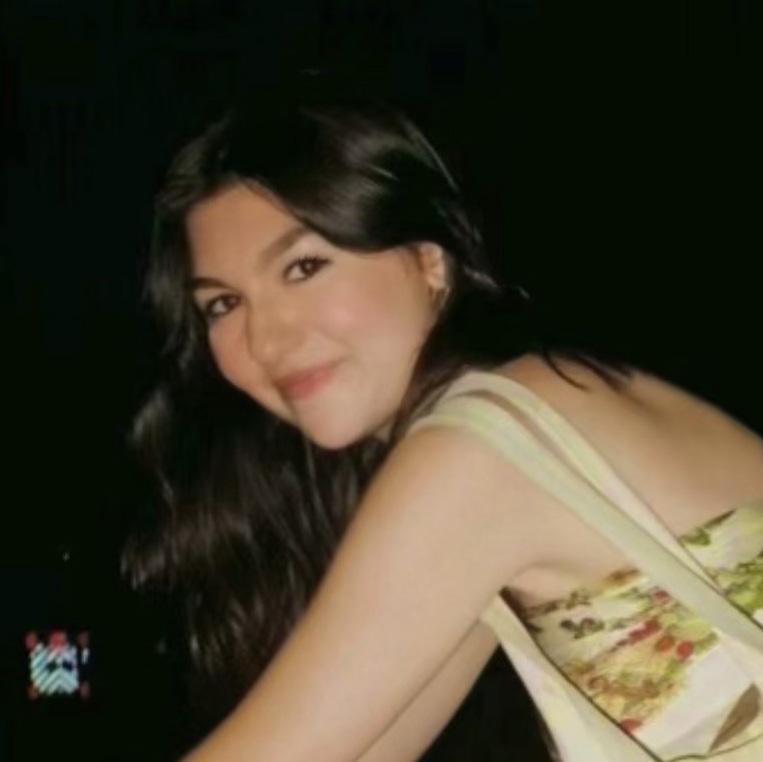
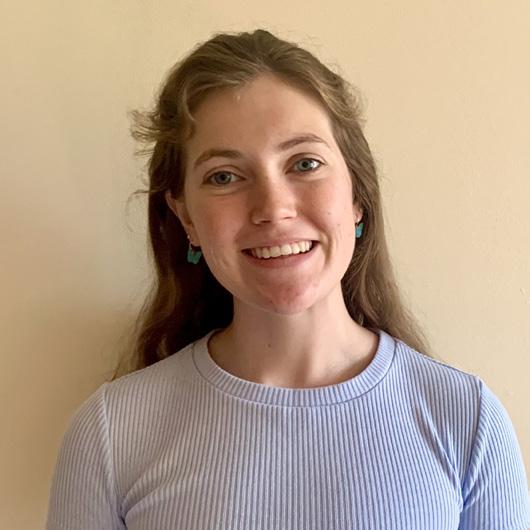
[people are] like cheating all the time! It’s so normalized in all these universities.”
Dougherty emphasizes the culture of trust at Davidson.
“Professors trust us. The default is trust. And that immediate trust is very telling of Davidson faculty members and students.”
After speaking with numerous students, it seems the pressure to succeed in STEM (Science, Technology, Engineering, and Mathematics) is high, particularly due to the large percentage of students who say they are looking to pursue medical, post doctoral, and masters degrees.
“There’s a certain level of naivete a lot of the [Davidson] population has, especially if you extend it to academics,” said chemistry major Khwahish Sharma 24’. “If you told me every student on this campus followed the honor code to a ‘T’ I would call you a liar. People tend to take advantage of trust sometimes, and I have seen people break the honor code many times.” She continues, “I was obligated to report that to the professor because I didn’t want to put my relationship with that professor at risk to protect a handful of students that were getting an unfair edge.”
Harrison Grooms 25’, class senator and community committee chair, and honor council co-president, Zayna Abuhakema 24’ recognize the enduring effects that Covid has had on our ability to adhere to the honor code. According to Grooms, since Covid, there has been an uptick in honor code-related violations resulting in proctored testing, especially across STEM departments. According to Abuhakema, the heavy reliance on technology during Covid has left students confused.
Davidson, Don’t Teach For America
During my first year at Davidson, a Teach for America (TFA) Representative visited two of my educational studies classes. While briefly explaining the organization’s mission, which at face value is commendable, she handed out interest cards. Hoping students would want to apply to become corps member after her insufficient 30-second pitch, she encouraged seniors–lacking any significant info on TFA–to fill out these cards. After learning that Davidson is currently the top feeder to TFA in the small liberal arts college division, according to the TFA recruiter, I knew that if the representatives were not going to tell the full story, then I would.
TFA is a non-profit organization created by Wendy Kopp, a white Princeton graduate whose idea for the organization came from her senior thesis. The mission of TFA, as written on the website, is to “develop as many as possible of our nation’s most promising future leaders to grow and strengthen the movement for educational equity and excellence.” To achieve this goal they recruit college graduates from elite universities across the country to serve as “teachers” or, as they call them, “corps members” for at least two years at a public or charter K–12 school in one of the 52 lowincome communities that the organization serves. While this may sound like an innovative way to boost educational equity and fight the teacher shortage, in reality, it is more harmful than helpful.
First, the “teachers” they recruit are not fully certified. Instead, they participate in a 5-week summer training program designed
to prepare them for the classroom and, over the following two years, then enroll in an official 2-year certification program. According to the Brookings Institute, “just over half of TFA corps members leave their placement school once it’s fulfilled, and about 15% remain in place at the fiveyear mark.” This means that once they do finally become certified after two years of working, most don’t continue, proving TFA not to be the so-called solution to the teacher shortage. Instead, it’s leaving school administrators and students worse off, with high turnover rates that create burdensome costs such as searching for replacements and disrupting instruction.
For years, the main issue with TFA was the lack of BIPOC representation within their corps members. The majority of these
“It’s almost like [as a community] we’ve forgotten what’s allowed and what’s not.”
In respect to the STEM/humanities polarization, Center for Teaching & Learning director and Biology professor, Dr. Mark Barsoum suspects the divide has much to do with how students are tested.
“I have a philosophical problem with the culture of testing that pervades all of education,” Barsoum said. “I decided a long time ago that I wasn’t going to assess students that way.” As such, Barsoum adopts a different teaching style, instilling collaboration skills essential for future professions.
It cannot be understated that with AI technologies becoming more powerful and more tempting than ever, the gap is narrowing. Barsoum recognizes the utility of these tools and attempts to integrate them into the classroom rather than demonize them.
“No student, faculty, or staff member is superhuman,” and that teaching must evolve as technology advances.”
He concludes that empathy and compassion will be essential for students and teachers as we tackle challenges of learning and teaching in a society that becomes increasingly dependent on technology.
Honor council co-presidents Anabelle Ross ‘24 and Abuhakema are optimistic about the upcoming revisions to Davidson’s code. The updates will provide students a way to file anonymous reports, creating more transparency and accountability. Ross reveals, “technically, everyone is supposed to report if they are aware of a violation. I think people are afraid to do that because they
don’t want to get people in trouble.” The honor council should be seen less as a “punitive body” and more of a resource for guidance.
It is clear the honor code can only act as an ideal for the Davidson community if all members follow it. The code isn’t telling you to leave your car unlocked or put complete trust in your classmates, however, it provides greater confidence and trust in our community. Those who choose not to follow the code are not only dishonoring themselves but also our collective community, chipping away at the very thing that makes Davidson so special.
As members of the Davidson community, we should uphold these values, viewing the anonymous reporting system not as policing, but as a mechanism for support and accountability. In the course of conducting the many interviews for this piece, I discovered that there were far too many reports of cheating. By checking in and caring for one other, we can do a better job of preserving the trust that thrives on this campus. These changes will reinvigorate our culture and renew our commitment to ourselves that the honor code was intended to foster.
regards to diversity. Still, this does not mean that the BIPOC corps members working for TFA have had a positive experience. Many alumni over the years have spoken out, even writing books such as “Teach For America Counter-Narratives: Alumni Speak Up and Speak Out,” an informative read detailing the poor diversity training and support given to corps members, specifically those of color.
In 2019, ProPublica published an expansive report exposing the shady relationship between TFA and the corporate charter school movement. It showed that around 40% of corps members are placed into charter schools by TFA, diverting funds from low-income area public schools to privately-managed charter schools. These schools are at times operated by
organization doesn’t have a preferential bias towards charter schools, documents released by ProPublica prove otherwise. They showed that TFA receives a significant amount of funds from pro-charter organizations. In fact, the Walton Family Foundation donated TFA 2,000 additional dollars per teacher placed in a charter school over a public school for years. The real kicker is that the largest charter school network in the country, KIPP, founded by alums of TFA, was also run until last year by none other than Weddy Kopp’s husband, Richard Barth.
Now, if you are a senior seriously considering TFA as a post-grad plan and are now feeling confused, please let me guide you to some other options if you are interested in educational equity work. There are numerous alternative ways to make a difference in the field of education. I encourage you to look at fellowships and non-profit organizations, as well as volunteer work. To start, here are some excellent opportunities:
1. Davidson Impact Fellows
2. Davidson College Fellows Program
3. John M. Belk Impact Fellowship
4. Helps Education Fund
5. Traditional teacher certification programs
recruits hailed from elite universities, including Davidson, where TFA recruits did not reflect the communities they were placed in or the students they were teaching, according to TFA stats published on their website. While this is something TFA still needs to work on, it would be remiss not to acknowledge the progress they have made in
wealthy entrepreneurs with a white savior perspective who believe they can change the lives of children while simultaneously making an egregious business profit. A study conducted by the Network for Public Education found that from 2018-19 data “over 600,000 students are educated in charters run for profit”. While TFA claims the
I believe Davidson students strive to improve the lives of others. After all, our motto is “preparing students for a life of leadership and service”. Together let’s protect this cherished mission and invest in organizations that reflect our values.
NINA WORLEY ‘26 (SHE/HER)
“I knew that if TFA representatives were not going to tell the full story, then I would.”
A Look Into Hannah Fischer’s ‘17 Return to Davidson A Player’s Perspective
Davidson field hockey assistant coach Hannah Fischer ‘17 played for the Wildcats from 2014-17. She received a nod to the 2014 A-10 rookie team, was a sophomore on the 2015 team that reached the A10 tournament, and led the Wildcats her senior year with an impressive 14 points. She coached for four seasons at Central Michigan University and took three positions there: graduate assistant, assistant coach, and most recently interim head coach. Fisher is back at Davidson, now in her second year as an assistant coach- and the Davidson community could not be more excited. A familiar face back on the field is something that does not happen often.
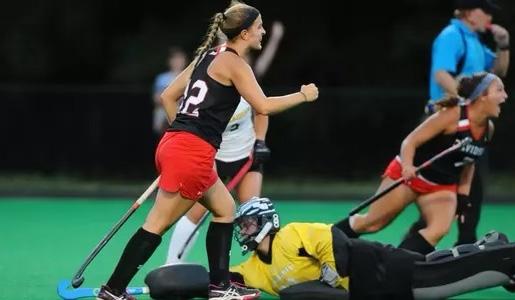
While Fischer is thrilled to be at Davidson, she never thought she would be back. Once she graduated, she felt as if she had served her purpose at the college. Fischer spent more than the average four years at Davidson as two of her older siblings attended school here. Tired of the comparison and referral as “the little sister”, she wanted her own experience and space. However, as college visits increased, she found herself comparing each and every school to Davidson’s campus, the people, and the feeling. Eventually, she decided on Davidson. She states that while all of the three siblings shared the same last name, each forged a path and developed experiences that were truly their own. That is something so special about Davidson- you can be anything and everything, as long as you put your mind to it. The imprint that this small college left on her is one of the reasons she eventually headed back down south.
During her time at Central Michigan, Fischer kept in contact with Head Coach Zoe Almquist. Ultimately, her desire to have warm weather year round pulled her back to the college - that and her love for Davidson Field Hockey of course. She returned to Davidson with a plethora of experience. From serving as an assistant while getting her masters degree, to her further coaching positions, she was able to garner and develop a new perspective. More than anything though, she owes Central the confidence she gained “in the transition from player to coach” and helped her realize “what type of coach, both technical and tactical, she was and was going to become.”
In addition to the comfortable climate and love for the school, the thought of a new Davidson experience reeled Fischer in. She quotes, “a new coach, a new team, a new AD, a new year/ decade, a new experience” is part of the reason she returned. While being back in the Davidson field hockey world is very much synonymous with deja vu, she is now working in a new role, under a new light. She is adamant to add though that though “many things have changed, the love for the people and the place remains the same.” She is confident these feelings will never diminish.
Fischer argues “there is something so unique and special about Davidson, much of which comes from those who continue to remain at Davidson and those that come back to Davidson.” There is something to be said about being able to look at a coach and realize she went through something so similar to you, especially at an academic powerhouse such
as Davidson. An understanding exists. Fischer was a scholar athlete at Davidson, she has truthfully been in our shoes, “or rather in the classrooms, library, AT sessions, and all of the above.” Her understanding of the athletic and academic rigor that is Davidson, allows her student athletes to relate to her in a way that they cannot with most coaches. Going to an institution that fosters a desire to stay long term or come back, is not common. Davidson is a special place in that way. Individuals leave and travel the world, but know they can always find their way back home.
Looking onward, Fischer could not be more excited about the new directions Davidson Athletics is taking. She states that “the athletic department is taking great strides in creating an incredible scholar-athlete experience”. Fischer argues that Davidson is working fearlessly to prove that it can be “one of the top liberal arts institutions” while also competing as an “elite Division one program all around.” She is careful to add that field hockey is part of that process. Her ultimate goal is to get the team back to the A10 Tournament, a feat that is challenging but definitely possible with the resilient and hard working mentality that both the coaching staff and players possess.
Annie Hershman ‘24 is player on the field hockey team.
Davidson Women’s Volleyball Update: In Midst of Another Magical Year
VICTOR TAYLOR ‘24 (HE/HIM) SPORTS EDITOR
Another year, another jump for Davidson Volleyball. The Wildcats finished off their non-conference season last weekend at 8-2, their best 10 game start in 33 years. Their momentum carried over to conference play as well, as the ‘Cats swept the weekend series with George Washington at home with 3-1 and 3-0 victories. Davidson started the season even stronger, taking down host College of Charleston and Big 12 foe West Virginia in similar 3-1 decisions, and getting out to an 8-0 start on the year. A road defeat to High Point and a 5 set heartbreaker to Wake Forest are the only two defeats the ‘Cats have suffered so far. What’s been the difference this season compared to seasons past where Davidson was, to put it bluntly, poor to mediocre? Setter Jessie Doyal ‘24 credits former assistant coach Dee Davis for “bringing a mentality of internal belief within the team” for the mindset shift over the past few years. It’s definitely paid off looking at the recent results of the squad.
The Davidson offense has been firing on all cylinders, a model of both efficiency and
aggression. Head Coach Chris Willis told me that he can’t “just talk about one player who has led our offense, as balance has been another key in our success.” Jackie Bardin ‘26 leads the team in kills with 138, and Sola Omonije ‘24 and Kayla Davis ‘26 are hitting the best percentages in the A-10, with marks of .405 and .396 respectively. Defensively, libero Isabella Brady ‘24 has continued her dominant play, recording 222 digs so far on the season, which now puts her in 5th for Davidson all-time leaders in digs.
As the Wildcats now turn their attention to conference play, health is the key to staying at their best and continuing the hot start. Coach Willis said the health of a squad is “vital to any team’s success” and that the group would be focused on “rest and recovery as the season continues.” The ‘Cats will now have two opportunities to take on strong conference foes on their own floor. They face last year’s regular season champion Loyola Chicago this upcoming weekend, and then league leaders Dayton on Oct. 12 and 13, both inside Belk Arena. Six weeks remain as the team chases towards a first A-10 regular season title, and they will be looking to continue upon their success they’ve found so far.
A-10 Conference Women’s Soccer Conference Standings
Sports 5
A-10 Conference
Davidson Loyal Chicago Duquesne St. Joseph’s St. Louis VCU Dayton Fordham St. Bonaventure La Salle URI UMass 2 1 1 1 1 1 1 1 1 0 0 0 0 0 0 0 0 0 1 1 1 0 1 2 +5 +2 +1 +1 +1 +1 +5 +2 -1 0 -6 -2 Team W L D GD
Standings Update
Men’s Soccer Conference Standings
ANNIE HIRSHMAN ‘24 (SHE/HER) SPORTS WRITER
Hannah Fischer ‘17 fists pumps during a game in 2017.
0 1 1 1 1 1 0 0 0 2 1 0
Photo by Tim Cowie
UMass Dayton Duquesne St. Louis St. Bonaventure VCU La Salle St. Joseph’s Loyola Chicago Fordham George Mason URI 3 2 2 2 2 2 2 1 1 1 0 0 1 0 0 0 1 1 1 0 1 1 2 1 9 8 8 7 7 7 6 5 5 4 3 2 Team W L D CPCT 0 2 2 1 1 1 0 2 2 1 0 2
Arts and Entertainment 6
Spaces of Comfort - A New Lens for Socialization
four hours in a photoshoot with each other felt inconceivable at first, but it became an eye-opening experience.
Endia Beal is a North Carolina-based artist, curator, and author dedicated to merging the fine arts with social justice. She is internationally acclaimed, with her works displayed at Duke University’s Nasher Museum of Art, the Charles H. Wright Museum of African American History in Detroit, the New York Times, NBC, BET, and many more museums and publications. Her artistic prowess and visions speak for themselves. When Davidson’s Visual Arts Center created a grant for a project centered around social justice, Beal was the perfect candidate. Her initial brainstorms considered students’ sense of belonging and occupation of spaces throughout campus. As a graduate of predominantly white institutions, UNC-Chapel Hill and Yale University, she often felt surrounded by people different from her.
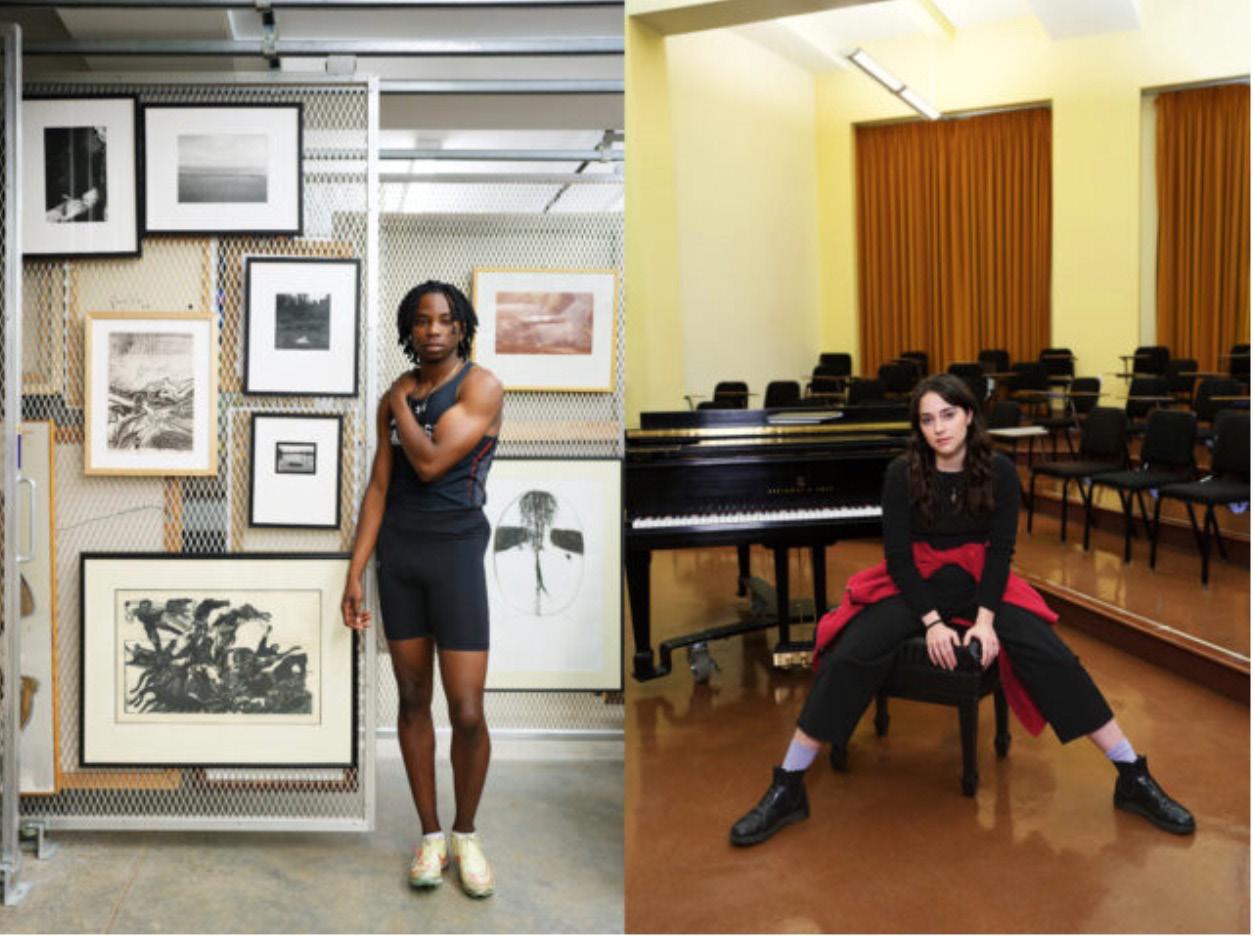
“I remember being the only black person in my classes and there were places on campus I just didn’t go,” she states. “I was afraid because I didn’t see another face that looked like mine. So I didn’t go, I never went to certain spaces because I thought [they] weren’t for me.” This experience inspired Beal to explore how students at Davidson occupied the campus. During listening sessions with students interested in the project, she asked them two questions:
“So where do you kick it?”
“Where do you decide not to go?”
Beal observed the trend that her interviewees either had their spaces of comfort in communal areas, with students like them, or isolated spaces: “The students were doing some of the same things I did… spending time with people similar to them.” She then turned her attention to creating a sense of belonging and acceptance. When pondering on how to do this she said, “[let’s] have them switch places, and photograph them in each others’ comfort zone.”
Beal’s series consists of sixteen models, all Davidson students that she subsequently paired up to swap places. Claire, invested in the arts, and Isaac, a student athlete, are two of the sixteen models in this series. Seeming completely different on paper, they proved an ideal pairing. The thought of spending
When Claire arrived in Isaac’s space, though, she unearthed a misapprehension: “I was surprised by Isaac’s choice of this space, given that non-athletes at Davidson, including myself, often hold the misconception that athletes lack artistic interests.” She continued, “Since I am also passionate about
with people that made me uncomfortable… I wasn’t really growing if I surrounded myself with people who looked and sounded like me.” The importance of people connecting with those unlike them was part of the ethos of her work, prevalent in the process along with the final photos.
She explains, “I would sometimes show up a half-hour late to our photo shoots when I was really just sitting at the coffee shop because then they had to connect and get to know each other.”
The models had to confront their sense of belonging with people and spaces that pushed them out of routine. Beal wants the audience to do the same. Her work is an interrogation of our own biases toward the places we occupy. She explains, “We need to question our own ideas of…who belongs with what social group, what race, and [so on].” Without this questioning, we keep our society uncomfortable with itself. As viewers gazed upon the photos, many felt confused and slightly like something was amiss. Yet, that is the point. Every student participant experienced discomfort, but through that experience they learned to see their partner in a new light.
Beal understands that “there may be a level of discomfort for some when [seeing these photos], and I think that discomfort is a good thing because it allows us to grow in the way that we need to.” And her work takes the first step of said growth. She guides the audience towards that embracing of discomfort that comes with exploring spaces that aren’t our own, connecting both the individual and the community. That discomfort lays a path for a more connected and welcoming world, starting with those few steps into the VAC to view this comprehensive exhibition.
music… it was great to connect with Isaac about music and shatter my expectations of a student-athlete.”
Isaac felt similar, describing how “the act of inviting a fellow classmate into my own personal oasis immediately forged a connection that may have otherwise eluded me.” Both of them gained a valuable vantage point into the life of someone they might otherwise just walk by in Chambers.
Claire, Isaac, and every participant in this project deeply connected with someone unlike themself. This development was precisely Beal’s intention. When asked about her work’s overall statement, she said, “When I was in undergrad, it was a missed opportunity [not] to go to places… and spend time
For those interested in visiting Beal’s exhibit, it will be on display in the VAC from August 28th to October 1st. Visitors can attend during standard operating hours. Additionally, Beal will be holding a DEIAB Workshop on October 3rd from 5:00PM-7:00PM (Note: attendance of the Artist Lecture is mandatory to attend the DEIAB Workshop).
Judah Silverman ’27 (He/Him) can be reached for comment at jusilverman@davidson.edu and Vonna Lin ‘27 (She/They) can be reached at volin@davidson.edu
Summer Concerts: The Big, The Bad, and The Eras Tour of it All
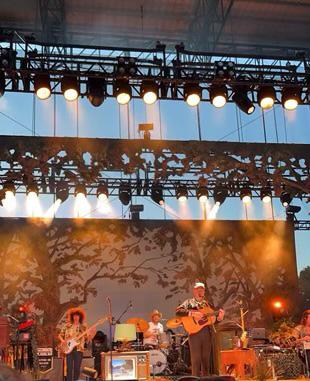

“ So obviously, I went to the Eras Tour,” freshman Anna Srickson replies when asked if she went to any concerts over the summer. It’s a fitting way to start the conversation. Taylor Swift’s Eras Tour has turned into a cultural phenomenon this summer. Opening Twitter and seeing one of her “surprise songs” trending has become a weekly occurrence as fans argue over which city got the best set list. Celebrities from all over the globe have been photographed in her VIP tent, dancing to one of her many record-breaking songs. “Taylor Swift is like… there’s chill concerts and then there’s Taylor Swift. Her’s was a whole experience,” Anna adds. Swift’s setlist clocks in at a little over three hours long and most of her audience is screamsinging the entire time, throats raw by the end.
Along with Anna, Amelia Monohan ‘27 saw Swift live in Cincinnati, a concert which started an hour early to avoid rain. “I’ve never been in an environment like that before, it was just so cool. And with the open-top stadium she was able to include flames and fireworks and stuff. It was awesome.” The Eras Tour is currently in its South American leg with the next show on November ninth in Buenos Aires, followed by six shows in Brazil. From there, Swift will make stops in Japan, Australia,
it to Eras this past summer, you might still have a chance at seeing Swift live (that is, if you’re willing to pay for both the ticket and a flight, and odds are the former will be more expensive than the latter). Of course, Taylor Swift wasn’t the only singer with a tour this summer.
Davidson students David Yoon and Grace Zagoria both saw country singer Tyler Childers over the summer, with Yoon attending the North Carolina show and Zagoria the New York show. Yoon explains that in comparison to other concerts, the Childers concert “was a lot more laid back. You go to a rap concert and the goal is to be in a mosh pit, basically, but country concerts are more chill.” Having gone to a Jason Aldean concert, another country artist, freshman Ava Widelo agrees. “In comparison to other concerts, country is a lot more low-key and inviting most of the time.” Tyler Childers, Luke Combs, Zach Bryan, and Morgan Wallen are just four of the many country artists blowing up at the moment, with multiple people saying a Zach Bryan concert would be their dream show. “I’d probably be willing to spend, like, two hundred dollars for a good seat at a Zach Bryan concert, although that’s probably cheaper than what they’re going for right now,” Zagoria admits. She’s not wrong. Nosebleed tickets for his upcoming North Carolina show are between 130 and 300 dollars, so not necessarily in the budget of many fans. Smaller artists are always good alternatives if you want a concert experience without the heavy price tag. Freshman Henry Art saw both Raven Lanae and Declan McKenna, in Massachusetts and Vermont, respectively. He describes Raven Lanaye’s set as being “really incredible. It was in a really intimate venue with not a ton of people there so her voice came through really clearly.” Raven Lanae is an R&B singer-songwriter who got her start in Chicago and has slowly gained a loyal fanbase with her Spotify listeners now coming in at one million a month.
On the other end of the music spectrum, Declan McKenna is an English singer-songwriter who’s most known for indie hits, the most popular being Brazil. At five million monthly Spotify listeners, he also isn’t necessarily a household name (Swift and Childers have 100 million and 12 million, respectively) but sometimes that makes for the best concert environment.
don’t feel as connected to the artist. In smaller venues it’s more interactive.”
There’s no single type of concert for Davidson students. Whether you’re screaming all the words to a Taylor Swift song, humming along to laid-back country music, or seeing an upand-coming artist’s first performance, there’s fun to be had at every type of concert.
Clara Ottati ’27 (She/Her) is from Chicago and can be reached for comment at clottati@davidson.edu.
Singapore, France, Sweden, and the UK, just to name a few. Her tour wraps in November of 2024. So if you couldn’t make
Grace Zagoria admits that bigger stadiums “Are really nice… But you’re in a stadium with thousands of other people and you
JUDAH SILVERMAN ‘27 HE/HIM VONNA LIN ‘27 SHE/THEY
Isaac and Claire, from Spaces of Comfort, 2023. Endia Beal. Photo credit Van Every Smith Galleries
Tyler Childers playing North Carolina show this summer.
Photo by David Yoon
CLARA OTTATI ‘27 SHE/HER
Raven Lanaye in Massachussets. Photo by Henry Art
Living Davidson
What’s your Fall Aesthetic?
Oh, my dear readers! How I’ve missed you!! I hope you all had wonderful summers, though I know they couldn’t possibly have been all that good without me giving you random, mostly unsolicited advice and opinions. Don’t you worry, though, I am back and ready to return to my obviously very important role in each and every one of your lives! To kick off the semester, let me tell you the answer to the question haunting (haha, get it?) all of you right now - what should your Fall Aesthetic be?
First, since we’re officially at the one month mark of being back to school, how’re your classes treating you?
A. Honestly, you’re really enjoying them. They’re the perfect blend of interesting but not impossible.
B. You really would prefer to not talk about it.
C. I mean, you like the idea of the classes. The actual classes may be a different story.
D. They’re fine. They’re classes, you’ll graduate, who cares what else is happening?
What’s the first thing you do when you wake up?
A. Make your bed.
B. Probably scroll through your phone a bit.
C. Brush your teeth/go to the bathroom.
Mostly A’s:
Going to post too many pictures of fall leaves on your social media - I respect you immensely for the dedication and planning I know went into the perfectly patterned squares, but I also simply need to know where the hell you are finding all these pumpkins?
Mostly B’s:
There for football season - Ah, the beautiful months wherein College Football, Fantasy Football, and the NFL are all happeninge. You never loved an afternoon more than the afternoons spent with friends and family, questioning if you may have not actually resolved those anger management issues as you watch your team fumble a catch you never would’ve missed.
Do you go to office hours?
A. Oh yes - if they have them, they can count on you to attend every moment of them.
B. You would honestly rather fail than have to go have any sort of potentially awkward conversation with a professor.
C. Only if I need help on something.
And last, but certainly not least, what is your current favorite app?
A. Pinterest.
B. Any form of social media.
C. Spotify (sorry apple/amazon music users!)
D. Who has a favorite app? I don’t knowmessages or something?
D. Last time you went to office hours, you ended up crying in front of your professor, Ok, and now something a bit more simple. Where are you from?
A. Somewhere up north - speaking of, how do you think THIS weather is fall?
B. The South, born and raised baby!
C. Outside of America.
Check Your Answers Below To See What You Got!
D.The west coast (how’s that homesickness treating you?)
Mostly C’s:
Just really likes sweaters - You are a simple person. You see a sweater, you like the sweater, you wear it so often other people start to worry you have never washed the sweater. You’re just happy you can once again wear what equates to a giant blanket out in public everyday.
Mostly D’s: Way too excited for Halloween - Your notes app is full of costume ideas you have been gathering since November 1st of last year and you have an app counting down the minutes to your favorite holiday. It’s called Spooky Season for a reason, and you’re here to remind everyone what that reason is.
What were wildcats up to this summer?
EMILY SMITH ‘26: This summer, I spent five weeks working as a fellow with the Davidson RISE program. Through this program, I got to assist a professor here at Davidson with ongoing immunology research, as well as start my own research project. We learned how to use different lab techniques and how to formulate our own procedures, which was something I am really grateful to have experienced. After RISE ended, I worked as a nursing student for five weeks at Camp Longhorn in Burnet, Texas. At camp, I got to help administer medications, provide triage care, and gain hands-on experience working in the medical field. Both of these experiences were great learning opportunities and also super fun, and I can’t wait to do it all again next year!
KATHERINE MARSHALL ‘26: This summer, I spent four weeks WWOOFing on a hazelnut orchard outside of Barcelona, Spain via Davidson’s Dean Rusk Grant which is such a good opportunity. I lived with the family who owned the farm and helped them with tasks varying from irrigation repair to pool cleaning to tomato harvesting to babysitting their 3 month old. On my days off, I spent time in and around Barcelona, practicing my Spanish and taste testing croquettes. Throughout this whole experience, I had to lean on so many strangers and new friends for help. Not only the family I stayed with, but so many other people at the bus stop, in line for museums, and on the metro helped me get to where I needed to be and engaged my level of Spanish. Making those connections was probably the most meaningful part of my trip.
MAGGIE THRALL ‘26 (SHE/HER)
We Are Wildcats is a human-interest column that aims to share the extraordinary within the ordinary at Davidson College and to showcase the inspiring things that make each and every Wildcat unique. If you wish to be featured or know someone whose story needs to be heard, please feel free to contact stwalker@ davidson.edu! Stay tuned for future stories! This interview has been edited for length and clarity.
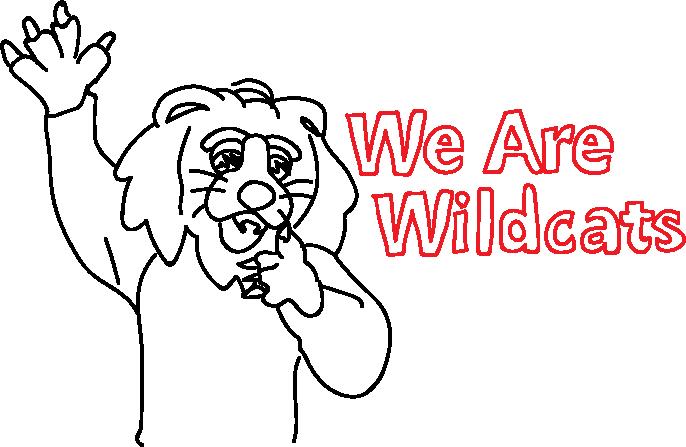
As Davidson students return to the humidity and sunshine bearing down on our campus and we welcome the incoming freshman class of 2027, we collectively prepare to get wrapped up in the stress of school once again. But what was it our Wildcats did over the summer? Ranging from internships to traveling abroad, three students tell what they did to take a break or prepare them for coming back to school this fall.
SARAH TODD (ST) HAMMER ‘24: Over the summer, I had a virtual internship with Disability:IN, the leading nonprofit resource for business disability inclusion worldwide. I attended their annual conference in Orlando, FL, where I had the opportunity to network with individuals from huge companies such as The Walt Disney Company who are making great strides in disability inclusion efforts. In addition to my internship, I finalized and submitted my book proposal for my 4th book I am currently writing! The book will be an educational piece on disability justice, and I’m really looking forward to having it published within the next couple of years.
7
Yowl The
Irreverent student journalism since 2004. Castigat Ridendo Mores.
yowl.com/sorryaboutlastweek
Does Your Professor Think You’re Stupid? Probably
Page Stop Participating
It’s Embarrassing
President Doug Hicks Impeached: Accused of Cheating in Ping Pong
Page Honor Code
September 28, 2023
Experiencing German Culture Abroad: “I’ve Never Resonated With a Culture as Much as I Did While Getting Hammered at Oktoberfest”
Page Cultural Immersion
Job Recruiters Saying Davidson Communications
After 4 years in the Davidson bubble, graduates make their way into the big scary world where people will steal your wallet and not every single person you walk by knows everyone you’ve ever kissed. Davidson grads are making strides in the profesional world. We asked some graduates how their four years at Davidson prepared them for life after graduation.
Stacy Aired ‘22 was a communications major and Spanish minor. She now works in the HR office of a small paper company in Virginia. She says she owes all her professional skills to her time at Davidson, where she “learned how to make the highest quality powerpoints of anyone in her office.” Even her boss weighed in, telling us that they’ve never seen infographics like the one Stacy sends out. Aired told us she owes these graphic design skills to her time as Union Board president and pre-made Canva templates. The Spanish minor really added to her ability to excel, as she “one time had to answer the phone to a client who only spoke Spanish.”
Johnny Dadiboy ‘19, an Economics major now works in investment banking, making six figures. How did his success come about? He tells us he owes it all to Davidson, and that he “doesn’t think [he] would have his current job without his incredible education, despite the fact that [his] dad owns the company.”
Stephen Didinstudy ‘23, a sociology major, is still searching for a management po -
sition. He claims that “employers don’t care about a management background,” but rather are all over his well rounded education. Didinstudy feels that he has an advantage in interviews, as recruiters are much more interested in what he learned in his Intro to Drawing, Ancient Greek History, and The Rise and Fall of Almond Milk classes than any type of marketable and tangible skills his competitors have.
Cameron Gulley ‘17, a dedicated member of the honor council, became a lawyer, quickly becoming successful. However, we recently learned that Gulley fell victim to an online scam, giving her credit card number to a blackhat hacker who claimed he was raising money for charity in a pop up ad. She “couldn’t believe someone would do such a thing.”
Marcus Golong ‘20, was a digital studies major and a D1 track and field athlete. After graduating from Davidson with no real prospects because he valued golf carting (Golong is from a pre-scooter era) over studying, Golong had a hard time adjusting to the real world where your housing is not automatically cleaned and your food is not paid for with fake currency, but luckily he found a job as a middle school PE coach. He also works at Cookout on the side. Golong had this to say for all the soon-to-be nonners, “watch your back.”
Birthday Issue
Pre Med Dropout of the Week
Page Weekly Profile
Davidson Starts Core Response Team for Herpes Outbreak
Page You Tested Positive
Freshman Advice Column: How to Know If He’s the One, or NOT
Here at the Yowl, we want to make sure that our freshmen are being set up to live happy and fulfilling lives at Davidson. When it comes to dating, it can be difficult to navigate the college scene. That’s why we’re here to help with some heartfelt advice. Here are some signs that he’s DEFINITELY NOT the one:
1. Gray or navy sheets
2. Carries around gallon water bottle
3. < 3 inch inseams (unless you’re looking for a gay bestie)
4. Cold sore on his lips
5. Wears cologne
6. On the baseball team
7. On the wrestling team
8. Showers >2x a day
9. Says your name multiple times when talking to you (he’s read How to Win Friends and Influence People and he’s just trying to influence you)
10. Political science major
11. Member of SAE
12. Not a member of SAE but did get in the SAE pool last year
13. Member of the Republican Party
14. No phone case (probably clinically insane)
15. Seen at F past 1 am
16. Could’ve played D1 ball if he hadn’t “torn [his] ACL junior year of high school”
17. Drives a car that’s more expensive than your future entry level salary
18. Decorates his room with empty beer bottles
19. Won’t ever put his dogs away (wears sandals all the time)
20. Is an Aquarius, Pisces, Aries, Taurus, Gemini, Cancer, Leo, Virgo, Libra, Scorpio, Sagittarius, or Capricorn
21. Brings backpack full of beer to F
22. Scooter boy
23. Takes notes on an iPad
How to Identify Someone’s Major
• Physics: cargo shorts, flip flops, heavy backpack, keeps head down and struggles to make eye contact
• Chemistry: wears running shoes to class, forgotten safety glasses from lab left on head, reusable coffee cup with triple shot espresso, mysteriously turns into giant green monster with superpowers from time to time
• Political Science: blazer, Ukraine pin on backpack, won’t shut up about Trump’s indictment, secretly super conservative
• Economics: Khakis, SAE t shirt, NorthFace puffer vest (just wait for the wintertime)
• Philosophy: multiple tattoos, observing surroundings in confusion–constantly having existential crisis, perpetually rubbing chin with great sorrow
• Communications: friendly, can make a banger powerpoint, can’t do simple math, either an athlete or a social media justice warrior
• English: carrying around a book written 200 years ago, romanticize everything
• Studio Art: dresses like a mom let a 2 year old pick out their outfit, paint on hands, preparing to be unemployed when they graduate
QUOTE OF THE WEEK
“You’re not used to southern cornfed boys.”
- an adult woman (to another adult woman)
• Computer Science: glasses, insane finger muscles, carpal tunnel, going to make more money than all English majors combined with Silicon Valley job when they graduate
• Russian Studies: currently under investigation by the CIA
• Environmental Science: cargo shorts, will constantly weigh in on the Chacos vs Tevas debate, spotted on cross country trails, perpetually on shrooms, lives in the dumpster behind Nummit
• History: cares more about events from 200 years ago than what’s happening today, really into WW2 or the Roman Empire
• Hispanic Studies: not Hispanic
• Biology: pre-med dropout, not because it was too hard of course, they’ve “just realized [their] passion for clinical research”
• Math: can’t spell
• Interdisciplinary Studies: superiority complex, commitment issues
• Physical Education, Recreation, and Wellness: bet you didn’t know you could major in this (you can’t)
Note: The Yowl is a satirical supplement to The Davidsonian Hence, nothing in it should be taken as truth.
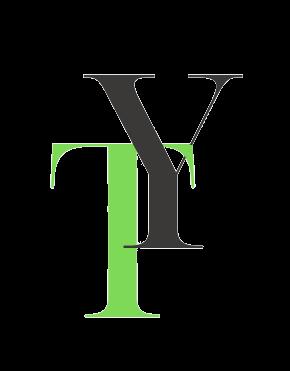
WRITERS Sorry Faces Revealed Baker Man Yowl The *vibrate* - Duo Push (for the 100th time today)
inside
Majors “Make the Best Infographics of Anyone [They’ve] Ever Met”
Yowl Logo Redesign Represents How Connected We Are to All the People We’ve Offended














